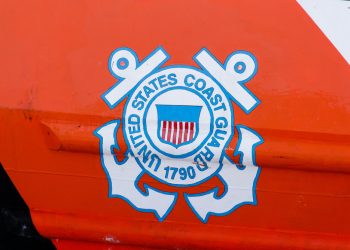The USCG has issued marine safety alert to enhance awareness regarding federal safety requirements for vessels carrying any paying passengers onboard a vessel on navigable U.S. waters.
For that reason, USCG uses the following scenario: ”The sea bass are running and your friend has a friend who can take you and another person fishing for a reasonable fee. He owns a boat that is ideal for fishing. You have a great day on the water, catch plenty of fish, and begin to return at dusk. While heading back in your Captain misreads the lights of another oncoming vessel and the boat you are on just barely escapes a high-speed, broadside collision. Everyone is thrown around as your boat goes through the other boat’s wake and nearly capsizes. You return to the dock with everyone onboard shaken by the experience and you quickly come to the realization that it was simply luck nobody was injured or killed.”
USCG explains that in the above instance, what seemed as an almost benign arrangement was in fact an illegal and unsafe operation. While sharing costs of a boat trip is perfectly legitimate and legal, in this hypothetical case, the Captain was required to be credentialed by the Coast Guard. As a result, he did not possess the basic safety knowledge to operate as a Captain of an Uninspected Passenger Vessel (UPV). Additionally, he was not regularly tested for illegal drug use and his vessel may have lacked proper safety equipment necessary for passenger safety operations. There are many other examples of non-compliant UPV operations, which have become all too common across the nation as new smartphone apps have made it easier to connect the general public with boat owners offering excursions. Boat owners or operators that serve as masters of UPVs and carry paying passengers are required by law and regulation to meet federal requirements for that type of operation. In accordance with Title 46 USC 4106, if a UPV is operated in violation of applicable laws and regulations, the owner, charterer, managing operator, agent, master, and individual in charge may be liable for a $5,000 civil penalty per incident.
This requirement is especially relevant for prospective passengers who book transportation services from a smartphone app and common examples include: water-taxis, offshore fishing, sight-seeing, water sports, burial-at-sea services, whale watching, sunset/dinner cruises, diving charters, corporate/school functions, movie shoots, and special events like Christmas boat parades, sailing regattas, and firework shows.
What makes these types of services fall under federal requirements as commercial vessel services is whether or not one of the passengers paid a fee for the service provided. More specifically, whenever consideration is contributed as a condition of carriage on the vessel and that consideration (i.e., payment) directly or indirectly flows to the owner, operator, agent or any other person who has a fiscal interest in the vessel, the transaction results in the excursion becoming a commercial service. There are exceptions related to bareboat charters, but a charter agreement would have to be in place and the charterer would have to be given full control of the vessel including the choice of who would serve as the operator/master.
The many safety requirements for UPVs relate to licensing, watch standing, vessel documentation, mandatory drug testing regime, casualty reporting, required charts and electronic equivalencies, navigation lights and sound signals, life saving and firefighting equipment, safety orientation and instruction, and pollution prevention. All of these different items build a “safety net” that goes well beyond the knowledge of an average boat operator and the basic safety equipment found on a typical recreational boat.
The Coast Guard strongly urges potential customers to be mindful of the dangers of using unauthorized boat operators. For your safety and the safety of others, please ensure that your boat operators are credentialed by the U.S. Coast Guard and are operating vessels with the required safety equipment aboard
Source: USCG































































